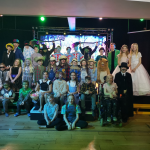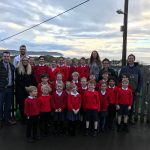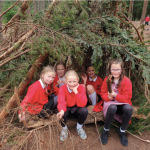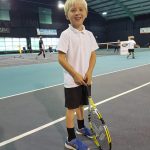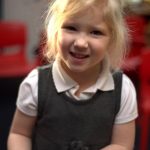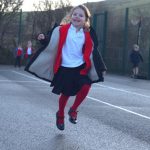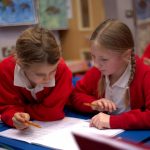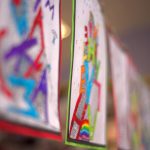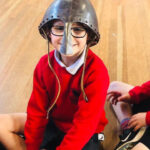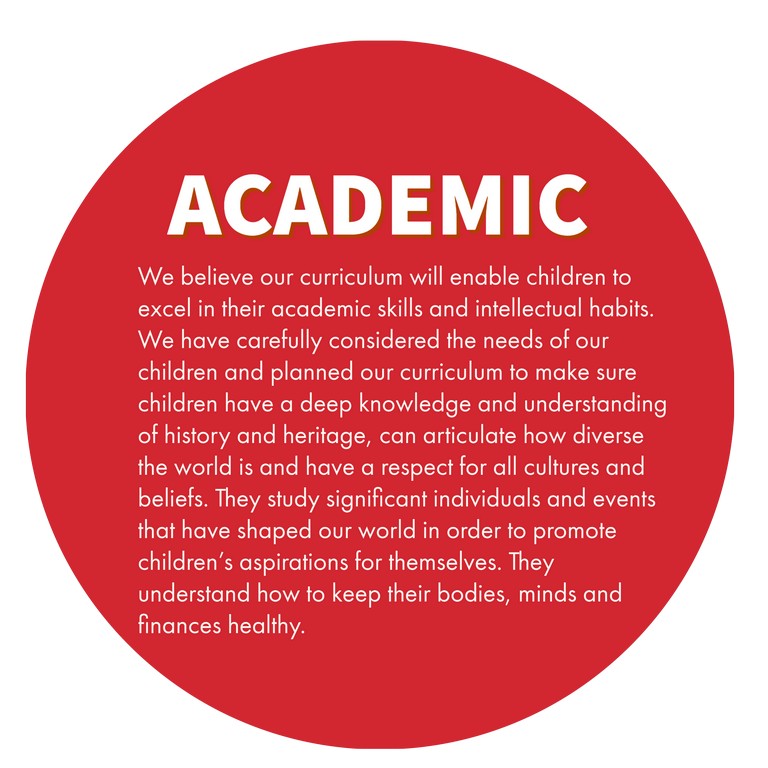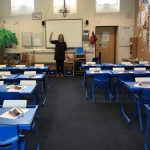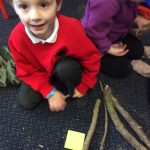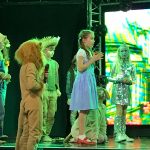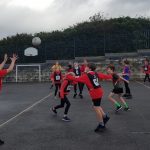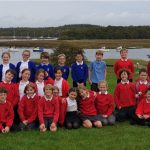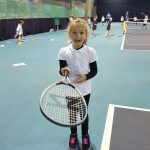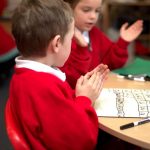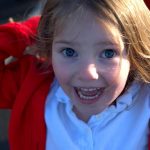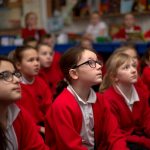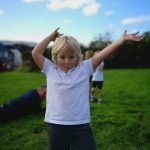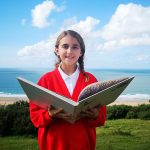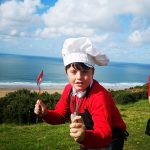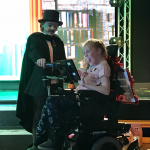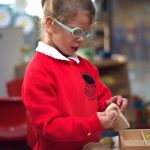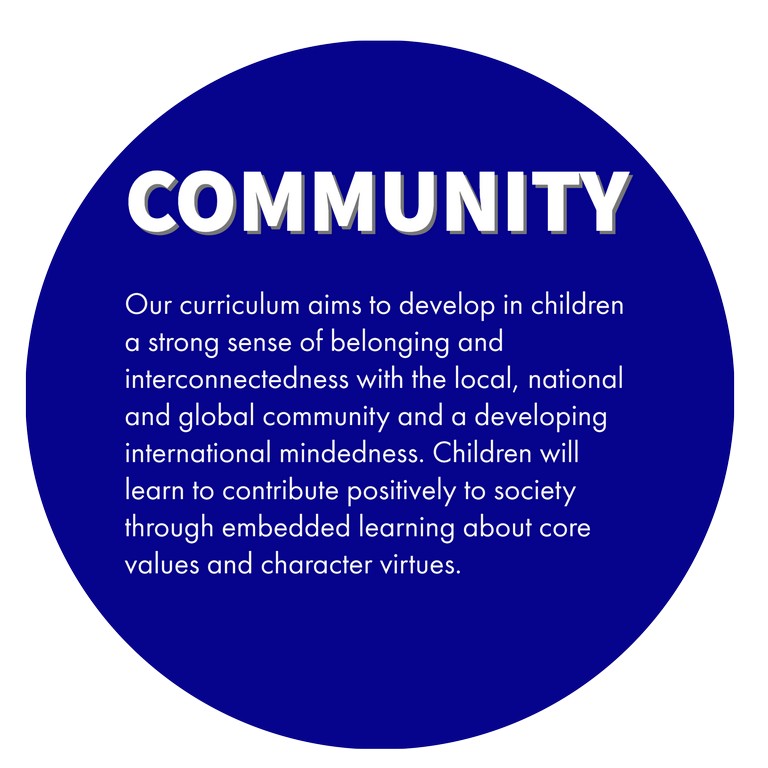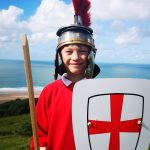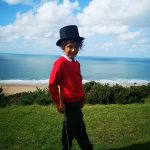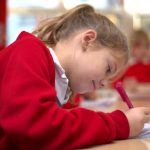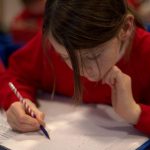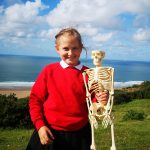Intent
We believe our curriculum will enable children to become inspiring change makers and global citizens of the future. We aim to inspire a quest for learning throughout life that is marked by enthusiasm and empathy, ensuring flourishing for all.
The four cornerstones of our curriculum are:
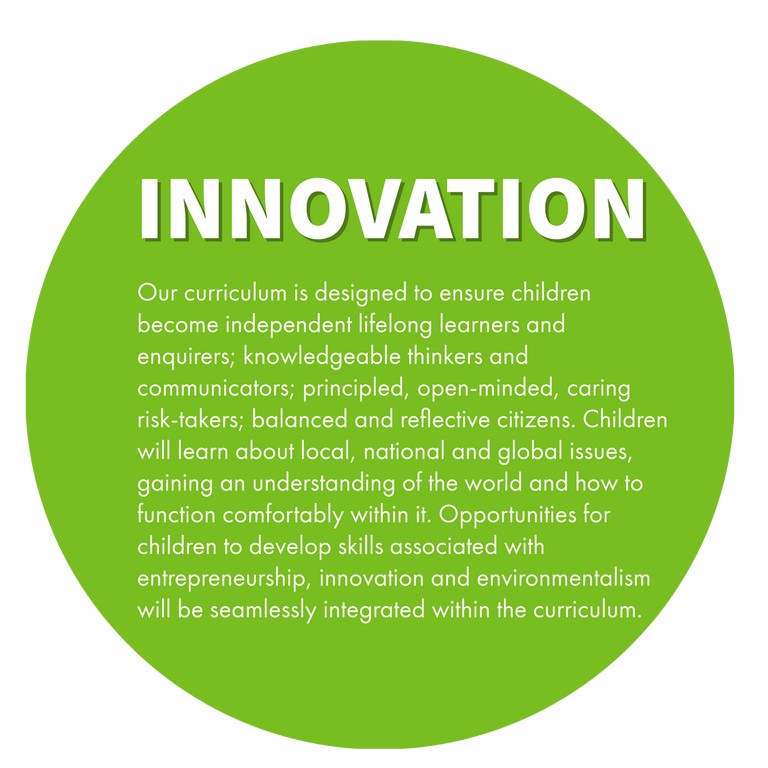
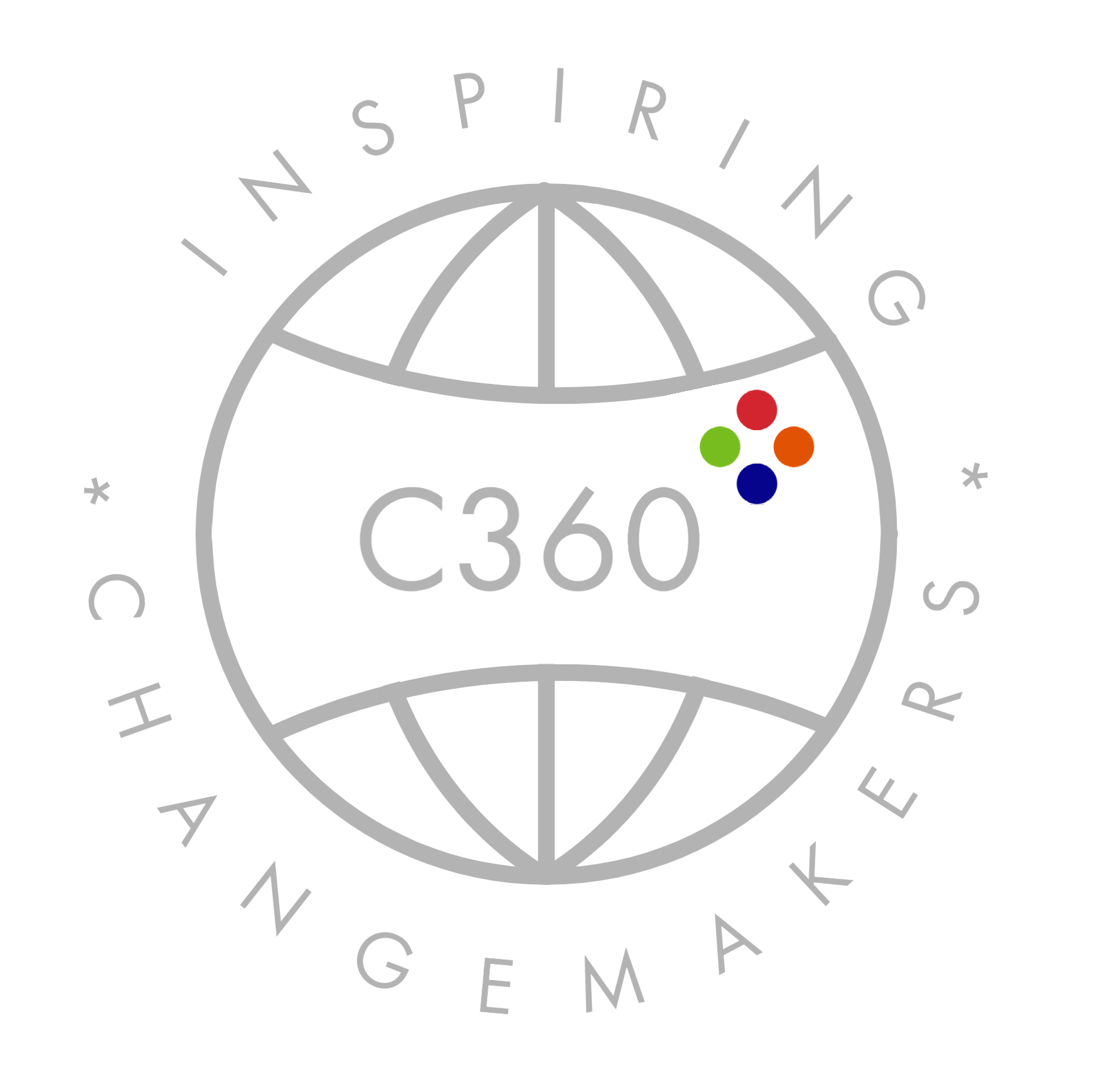
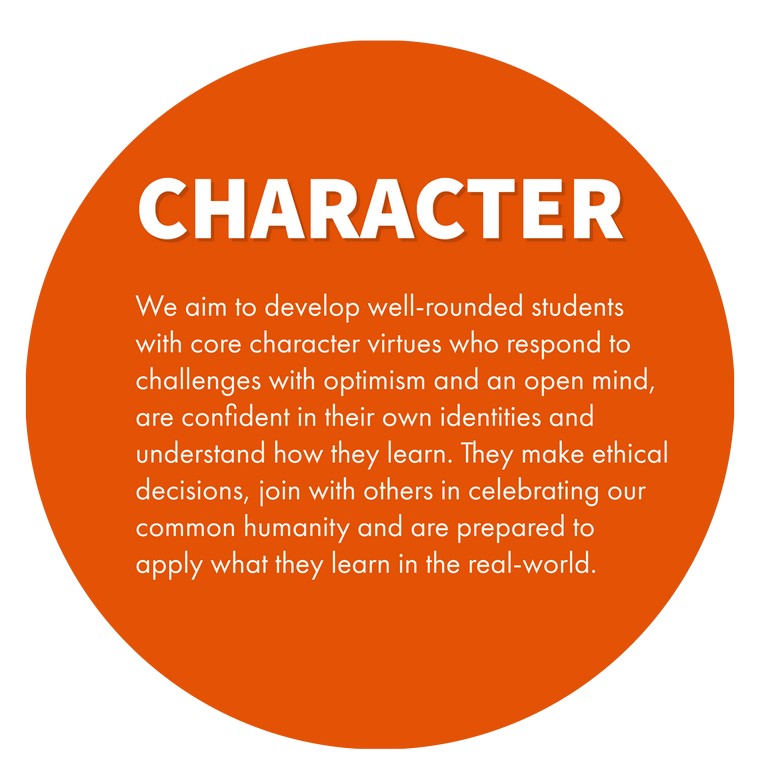
Implementation
Alumnis C360 and our four cornerstones; Academic Success, Character Education, Community and Innovation, are the framework to our curriculum. The curriculum is everything that the children experience in and around the school, planned and incidental, caught, taught and sought.
The ‘caught’ refers to the culture of the school and the inspirational influence of a positive ethos.
The ‘taught’ refers to the educational experiences the school provides to equip children with the vocabulary, knowledge, understanding, skills and attributes they need to be successful and ready for the next stage in their learning. The ‘sought’ refers to the opportunities that generate the formation of personal habits and character virtues.
We expose our students to powerful knowledge and provide education with character:
Character Education
Character Education is the foundation of our curriculum. Children have a wide range of opportunities to practise their character virtues through all curriculum subjects, enrichment and wider experiences. Character education is woven throughout, enhancing the curriculum to ensure children have experiences beyond the classroom, providing them with opportunities to apply their skills and knowledge in a wider context. Linking all the building blocks of character through four core character virtues:
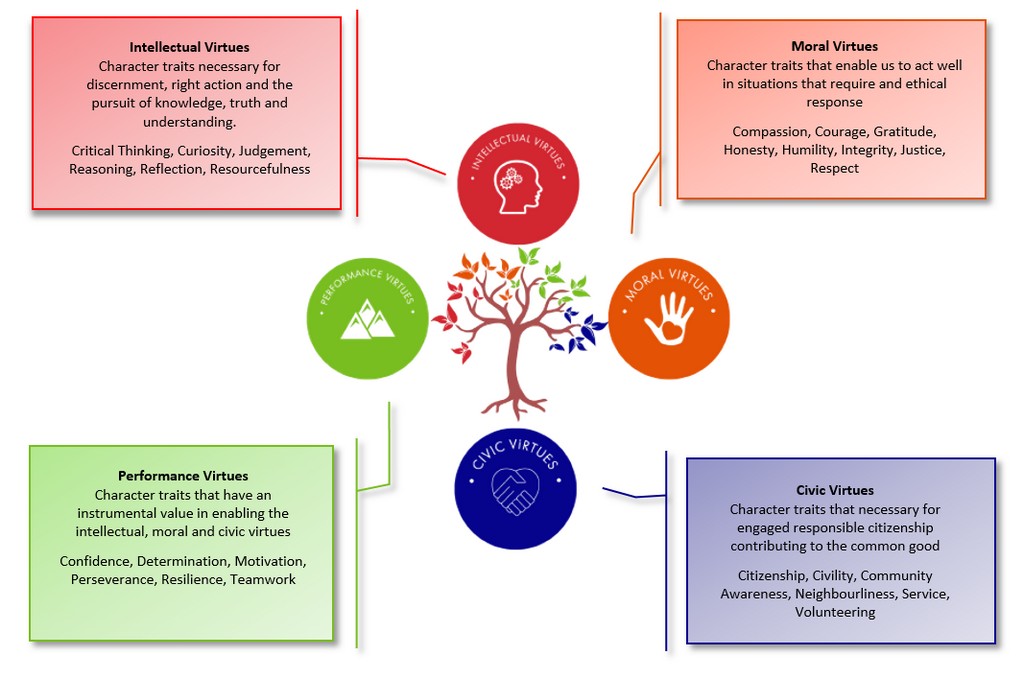
Our aim is to deliver a knowledge-rich curriculum that is cohesive, cumulative and purposeful. We want our students to become engaged, happy and self-sufficient world citizens, benefiting from and contributing to our local, national and global communities. We make it our mission to foster a love of learning and a sense of agency, inspiring change makers of the future, whatever their background or starting point. For our most disadvantaged students we focus on removing barriers to enable access to the full curriculum and secure good progress, learning without limits.
Our curriculum comprises a creative and thematic approach to learning that is mapped to the National Curriculum to ensure comprehensive coverage of national expectations. The learning journey enables subject-specific content and ensures there is clear progression, consolidation and extension of skills and knowledge.
We build in opportunities for children to return to areas of learning, which allows them to gain a deeper understanding of the skills and processes within subjects. The planning process involves the children assessing their previous knowledge and encouraging them to pose their own questions throughout each project.
Curriculum
We organise learning into overriding themes, with lead subject drivers which link with the overriding theme. Although some learning is discrete and is taught through specific schemes. Our Alumnis future ready curriculum includes the National Curriculum which we supplement with the United Nation Sustainable Development Goals and our focus on developing characterful individuals who can inspire change.
Teachers follow the curriculum progression documents and work collaboratively to deliver excellence as standard. We want our teachers to be imaginative and responsive to individuals, circumstances, environments or events in the academic year.
Our framework encompasses four key cornerstones that support in developing the whole child whilst driving standards ensuring all pupils leave our schools ready for the next stage in their educational career. As part of these cornerstones we expect our teachers to address certain principles to lift quality, engagement and standards at every level.
Impact
We monitor and track the impact of our curriculum through:
- Triangulation of a range of information including planning, children’s books, online platforms, pupil voice, marking and feedback.
- Progress from starting to end points of projects.
- The knowledge and understanding the children retain over time leading to the standards that the children achieve by the end of each year.
- The quality of work, progression of skills, depth of knowledge and understanding presented in the children’s books, classroom displays, learning journeys, exhibitions and social media feeds.
- Attainment and progress including national tests and standardised assessments.
- The development of children’s oracy - their ability to articulate their learning.
- The completion of the 6 inspiring changemaker challenges and progress towards pupil agency .
- The develop practical wisdom; knowing the right action at the right time and becoming flourishing individuals who contribute towards a flourishing society.
- The development of character virtues that have far-reaching effects beyond the school gates, ensuring children become global citizens of the future.

